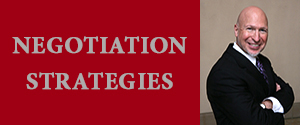

Dear Clients and Friends,
In our series of applying dispute resolution skills and techniques to international conflicts so as re-apply the lessons back to managing our own disputes and negotiations, please see my recent essay below published in The Diplomatist Magazine titled: "Imagining Peace in Ukraine - A Roadmap for Negotiations".
Please visit our newly launched YouTube channel and subscribe. This channel provides exclusively informative and instructional content relating to negotiation, communication and dispute resolution.
Whether through the written word, audio podcasts or visual videos, I look most forward to further engagement with you!
With Best Wishes,
Raphael
Imagining Peace in Ukraine
A Roadmap for Negotiations
by Raphael Lapin
With all the rage about war and the humanitarian crises in Ukraine, I decided to mitigate my anxiety just a little by trying to imagine what a peace agreement might look like between Ukraine and Russia.
Although to date there have been several attempts at official talks on various levels, the outcomes have been little more than each side tossing declarations of demands at the other in the guise of “proposals”.
If there is to be any advance in peace negotiations, the parties will need to cease to confuse demands with proposals. They must begin to jointly seek creative and innovative options that could potentially meet both sides’ interests without either side appearing to be capitulating, and therein lies the challenge!
Although to date there have been several attempts at official talks on various levels, the outcomes have been little more than each side tossing declarations of demands at the other in the guise of “proposals”.
If there is to be any advance in peace negotiations, the parties will need to cease to confuse demands with proposals. They must begin to jointly seek creative and innovative options that could potentially meet both sides’ interests without either side appearing to be capitulating, and therein lies the challenge!
The Issues in Dispute, the Demands, and Possible Solutions
1. NATIONAL SECURITY AND NATO MEMBERSHIP
Dispute and Demands: With regard to national security and NATO membership, Russia sees Ukraine’s potential membership and NATO military materiel on her doorstep as a national security threat, and as such, demands that Ukraine maintains neutrality and never be admitted to NATO. Ukraine sees this demand as undermining its rights to self-determination as an independent sovereign state, and as such chooses to assert its rights to determine with whom it wishes to ally. NATO for its part also refuses to deny any qualifying state, alliance membership which it claims is contrary to its charter. To better visualize these conflicting interests see the chart below:




